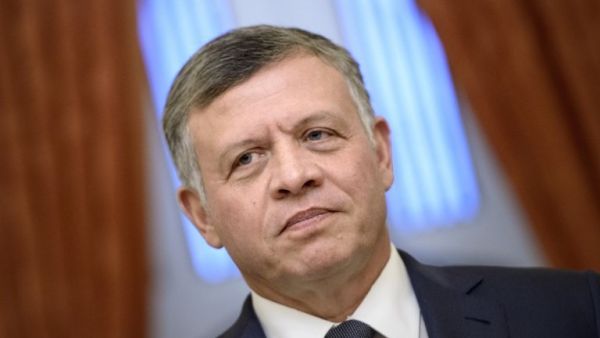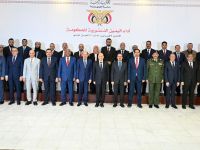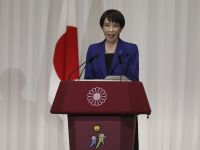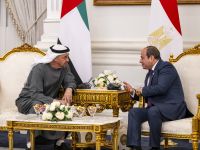King Abdullah on Wednesday chaired a meeting of the Economic Policies Council to launch a plan to stimulate economic growth during the next five years, a Royal Court statement said.
Read more: Jordan's Unemployment Rate At Highest Level In Eight Years: Report
Later in the day, the Cabinet approved the plan during its evening session, the Jordan News Agency, Petra, reported.
The blueprint aims to revive the momentum of the economic growth and benefit from the available development capabilities in the Kingdom through creating sectoral economic and financial programmes to frame the visions and policies related to each sector.
The plan also seeks placing Jordan on the path of sustainable development, to build a strong economy that is able to remain resilient in the face of regional and international challenges and minimise dependence on foreign support by expanding and multiplying economic and investment opportunities, the statement said.
The programme is also designed to generate jobs and develop human resources, in addition to preparing governmental institutions to be able to provide quality services.
Read more: Jordan Receives Only 3 Percent Of Funding Required For Its 1.3 Million Syrian Refugees
During the meeting, King Abdullah stressed the importance of rendering the plan a success, which, he said, is achieved when citizens feel a positive change in their livelihoods.
The King said that all are required to do their best to achieve the objectives of the blueprint, including trimming public debt, creating jobs and increasing income levels.
He noted that the key to success is swiftness of implantation and commitment of all of the parties concerned.
The plan will enhance Jordan Vision 2025 through helping achieve its goals, and will be a reference framework for measuring progress, the King said, noting that growth rates are lower than envisioned in the 10-year vision.
He pointed out that the only way to reduce the debt, create more jobs and improve income is implementing the programmes and plans that were created in cooperation with the international community, Jordanian expatriates, and Jordanian, Arab and foreign investors, despite the surrounding difficulties.
The King asserted the importance of setting evaluation criteria and following up on the plans to be used by the council.
Read more: Jordan To Host MENA's World Economic Forum In 2017
King Abdullah called for more effective economic activities for the Jordanian embassies, expressing appreciation for the joint efforts of the government and the Economic Policies Council in preparing the plan and underlining the importance of familiarising citizens with its goals and progress.
For his part, Prime Minister Hani Mulki stressed the government’s commitment to implementing the plan as it will enhance the resilience and flexibility of the economy in the next five years, asserting that it is an essential part of the financial reform programme.
The government will work on the plan in cooperation with the council, which will hold bimonthly meetings, according to Mulki.
The blueprint clearly states what interventions are necessary to achieve the goals of the plan, including policies, government projects and investments, in partnership with the private sector, the premier said.
It capitalises on previous efforts to develop comprehensive sectoral strategies, he said, such as the Royal vision included in the Royal Designation Letter to the government, the National Strategy for the Development of Human Resources, Reach 2025, which is an initiative seeking to digitise Jordan’s economy and create some 150,000 new digital jobs by mid next decade, Jordan Vision 2025 and the recommendations of the Royal Committee for Developing the Judiciary and Enhancing the Rule of Law.
The plan targets 19 sectors through 95 economic reform procedures and 85 government projects with a cost of JD6.9 billion and 27 private sector investment opportunities worth JD9.5 billion.
For their part, the council members stressed the importance of swift implementation and coordination among government institutions and the private sector, as well as securing the necessary funding available for the projects.
Read more: Jordan’s Revenues From Tourism Up 14 Percent: Central Bank Of Jordan
They asserted the need to rectify the status of stumbling companies and updating relevant legislation.
In June last year, King Abdullah sent a letter to Prime Minister Hani Mulki, in which he directed him to form the Economic Policies Council to be tasked with discussing economic policies and programmes, as well as development plans in all sectors.
The council comprises the prime minister, representative of the Lower and Upper Houses’ economic committees, the Central Bank of Jordan, the Social Security Investment Fund, the chambers of commerce and industry and private sector leaders.








